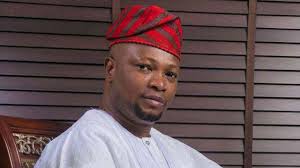Opinion
Beyond Financial Autonomy For Local Governments By ‘Tunde Ogunmola

The landmark judgement of the Supreme Court on Thursday, 11th of July, 2024, granting financial autonomy to local governments in the country is indeed a victory for the people at the grassroots and the Nigerian democracy.
It’s indeed a right step in the right direction in an effort to further strengthen our democracy and return governance to the people at the local level. As we all know, local government is the closest government to the people. Undoubtedly, this is a no mean feat for President Bola Ahmed Tinubu’s administration in the face of myriad of problems and challenges bedevilling the third tier of government in the country.
It will be recalled that former president Muhammad Buhari made a similar move of handing financial autonomy to the 774 local governments across the country using an Executive Order. However, the governors under the aegis of Nigerian Governors Forum (NGF), thwarted that effort via a Supreme Court’s injunction.
The significance of the financial autonomy granted to the local governments by the apex court is far-reaching in that it will markedly be a watershed in the history of management of local governments in the country. Historically, grassroots governance in Nigeria has gone through various changes both in name and structures, from local authority, to local administration and now local government. These changes, according to apologists of the system, were carried out in order to bring about better delivery of services the local government system ought to render.
Meanwhile, the question now is, has the changes in name and structures enhanced the delivery of services in the local government system? Are the local people feeling the impact of positive administration at the grassroots? I will leave you to provide answers to these nagging questions.
However, what the changes in name and structures of local government was set out to achieve is greatly proportional to what the present administration of President Bola Ahmed Tinubu wants to achieve with financial autonomy for local governments. These are, effective and efficient services delivery to the people at the grassroots; unhindered access to funds; abolition of undue political interference by the state governors in the affairs of local governments, among others.
Local governments getting their funds directly from the federation purse will, without doubt, be a plus for the growth and development of the grassroots governments, as it is meant to put an end to the stunted growth the councils have been subjected to across the country, with the exception of Lagos state, and few other states out of the 36 states of the federation.
As great as the idea of giving monthly allocation to local governments is, it has brought about laziness, complacency and uninventiveness in the administration of local councils by the chairmen of these councils, majority of whom are laid-back about revenue generation. They could not simply think outside the box to ingeniously bring out something out of nothing. Easy life is their lot. According to Muhammed bin Rashid Al Maktoum, “an easy life does not make men, nor does it build nations. Challenges make men, and it is these men who build nations.”
I came up with a piece on this recently with the headline: Local Government Monthly Allocation: Disservice or Blessing To The Third Tier of Government?
Here’s the link to the write up:
Meanwhile, availability of more funds to local governments ought to do them more good as this will enhance their interoperability, productivity and performance in terms of meeting the needs, expectations and demands of local dwellers but reverse might probably be the case if lack of financial probity and fiscal indiscipline are the stock-in-trade of local government administrators and chairmen.
As being postulated by a financial knowledge expert, Robert Kiyosaki that, “making more money will not solve your problems if cash flow management is your problem.” So also will access to more money will not solve the age-long financial insolvency at local governments if council chairmen fall short of fiscal discipline and cash flow management.
Invariably, financial autonomy for local governments may not necessarily translate to increase in masses-oriented programmes and projects, and good governance if those at the helms of affairs at these councils misappropriate and mismanage funds, and also found wanting in cash flow management. This also brings to mind an anonymous quote that goes thus, “it’s not about the money, it’s about the lifestyle.” Hence, it’s truly not about the money sometimes, it’s about the lifestyle, cash flow management, financial probity and fiscal discipline.
The Nigerian Financial Intelligence Unit (NFIU), an agency domiciled in the Economic and Financial Crimes Commission (EFCC), should be put on alert. Stringent measures be put in place to monitor and track misappropriated and mismanaged funds at the local governments so that the prime motive behind financial autonomy for local governments by this administration can be achieved. Any erring council boss be brought to book to serve as deterrent to others. If not, it will be business as usual as some of these chairmen will have a field day with people’s money to extent of not even meeting up with critical recurrent expenditure like salaries of primary school teachers and civil servants.
Aside the foregoing, examining the current pattern of local governments in the country as relates to system, what is being practiced is uniform system of local governments. Whereas in advanced society like the USA where we borrowed democracy from, local governments are not only creature of states they domiciled, they are autonomous and also allowed to operate according to the peculiarities of the states they are located. Simply put, local government system in the USA is as varied as the states they are. To this end, to further improve local governments administration in Nigeria in a bid to better serve the purpose of their creation they should be allowed to operate and evolve according to the culture, tradition and peculiarity of the states and environment they are located.
Essentially, local governments should be allowed to evolve their own model that addresses their peculiar challenges and needs in relation to the states and environment they are. This is crucial considering Nigeria’s vast ethnic, cultural and regional diversity; environment is a key factor that can make or mar local government.
Talking about functions of local governments. It should be firstly established that there is uniformity of functions and responsibilities for all the local governments across the country. As it stands, the Nigerian Constitution is explicit on functions of local governments. Constitutionally, their functions are grouped into three categories, the first group of functions are the ones exclusive to them as enshrined in the Fourth Schedule of the 1999 Constitution, the second category of functions are those they concurrently shared with the states they domicile, while the third category of functions are those assigned to them from time to time by their states. Number 2 of the Fourth Schedule of the same 1999 Constitution come in handy here.
In view of the above, constitutional functions of local governments also need to be amended to truly reflect their third tier of government status. Sharing functions with states and States’ Assembly assigning functions to them clearly pulverised their autonomous status. A whole lot needed to be done and carried out before local governments throughout the federation can be on their feet.
Elections into elective political offices at the councils, for instance, should be henceforth, conducted by the Independent National Electoral Commission (INEC) and not states electoral bodies because, “He who pays the piper dictates the tunes.”
Finally, the demand on government at all levels is fast becoming higher and more complex in the face of the current hardship in the country. Therefore, for local people to enjoy dividends of democracy, good governance and government presence in their localities, all hands must be on deck. Local government must be up to speed with these changes so that the good intentions of President Bola Ahmed Tinubu’s administration for the grassroots can be achieved going forward.
‘Tunde Ogunmola is a seasoned journalist. He studied Local Government Administration and Development Studies at Lagos State University (LASU)

























